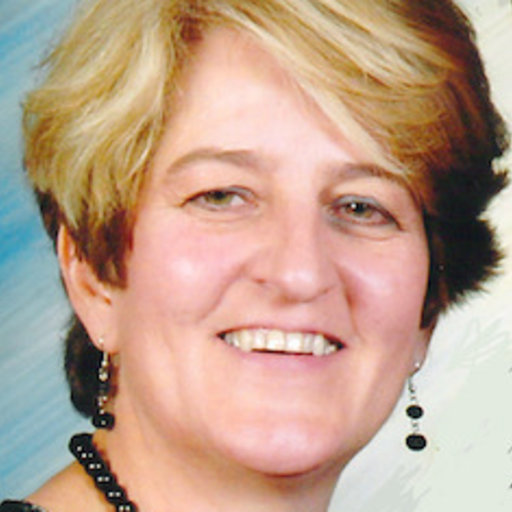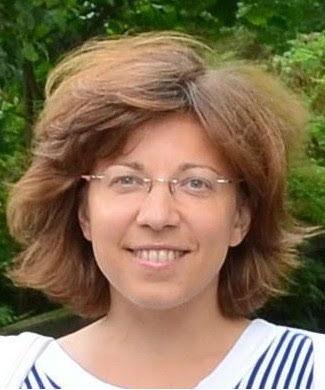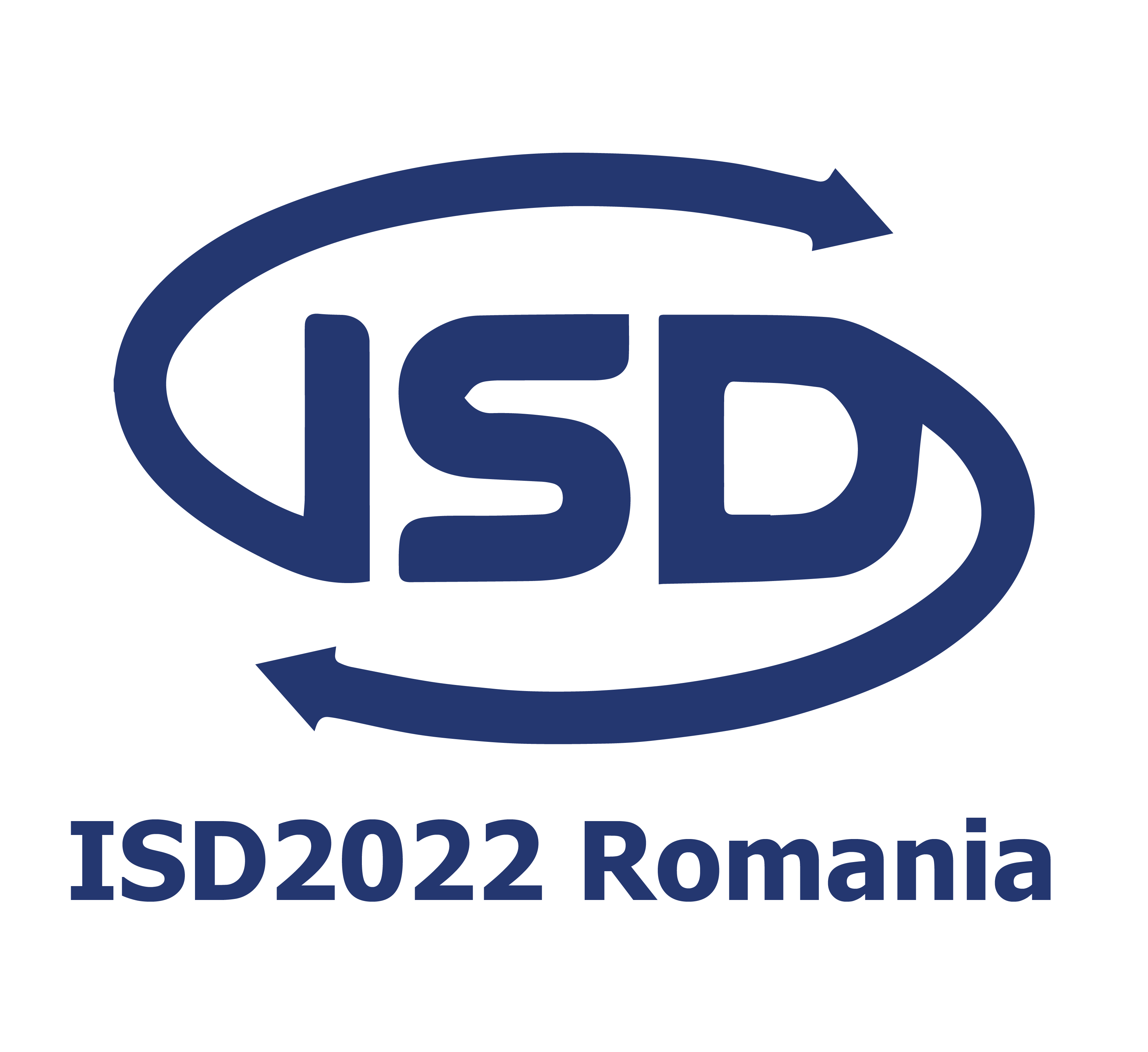The ISD2022 conference emphasizes a number of new and well established tracks. Click on the track title to see the details on conference tracks, topics and track chairs.
ISD2022 Cluj-Napoca, Romania
T1: Managing IS Development and Operations
Information Systems Development (ISD) evolves and creates new socio-technical Information Systems (IS) comprising processes, people and technologies. ISD is much more than software development, including analysis, design, development, implementation (adoption) and evaluation of information systems.
Managing IS development includes managing strategy, demand, innovation, projects, software, security, customers, finance, change, and so on. The “Managing IS Development” track will present and discuss research proposals and share practical experiences about solutions to the increasing systemic socio-economic, political and environmental problems related to the management of IS development.
We invite submissions from researchers and practitioners in all topics related to the Managing IS Development area that may solve these problems in the long term and expect a dynamic sharing and discussion of ideas and experiences about innovative practices, methods, and technologies.
Corresponding e-mail address:
If you have any inquires regarding paper submission to the track T1, please contact the track chairs at track 1.
Track topics include (but not limited to):
- Agile enterprise models and methods
- Knowledge management for IS development
- Business continuity management
- Business IT alignment
- Data storage and computation in the cloud
- Requirements Engineering for ISD
- DevOps practices for IS development
- Model-driven development and technologies for ISD
- Tools to support processes in IS development
- Emerging issues in managing IS development
- Continuous integration and continuous delivery in IS development
- Infrastructure as Code and IS
- Microservices in IS development
- Coordination and verification of continuously deployed systems
- Social and cultural aspects in continuous IS development
- Enterprise Architecture Management
- IT governance and management
- IT project management
- Interdisciplinary problems in managing IS development
- IoT-driven and IoT-enabled IS development and management
- Cloud-based IS engineering
- Monitoring and auditing in the cloud
- Quality of IS models and design
- Quality of services in IS
- Servers and desktop virtualization
- Service-oriented IS engineering
- Service Level Management (SLA)
- Strategies for IS development
Track chairs:

|
Emilio Insfran
Universitat Politècnica de València, Spain
|

|
Alberto Rodrigues da Silva
University of Lisbon, Portugal
|
Track program committee:
Marta Fernández-Diego, Universitat Politècnica de València, Spain
|
Juan Manuel Vara, University Rey Juan Carlos, Spain
|
Dušan Savić, University of Belgrade, Serbia
|
Miguel Mira Da Silva, Universidade de Lisboa, Portugal
|
Ilias Gerostathopoulos, Vrije Universiteit Amsterdam, The Netherlands
|
Jabier Martinez, Tecnalia, Spain
|
Ana C. R. Paiva, University of Porto, Portugal
|
Giuseppe Scanniello, University of Basilicata, Italy
|
Priscila Cedillo, Universidad de Cuenca, Ecuador
|
Maya Daneva, University of Twente, The Netherlands
|
Carmine Gravino, University of Salerno, Italy
|
João Faria, Universidade do Porto/Institute for Systems and Computer Engineering, Technology and Science, Portugal
|
Abel Gómez, Universitat Oberta de Catalunya, Spain
|
Olga Korableva, Saint Petersburg State University, Russia
|
Dominique Blouin, Telecom Paris, France / Hasso-Plattner-Institut, Germany
|
Fernando González-Ladrón-de-Guevara, Universitat Politècnica de València, Spain
|
Silvia Abrahao, Universitat Politècnica de València, Spain
|
Luca Cernuzzi, Universidad Católica “Nuestra Señora de la Asunción”, Paraguay
|
Paulo Rupino Da Cunha, University of Coimbra, Portugal
|
António Rito Silva, Universidade de Lisboa, Portugal
|
Mariana Peixoto, Universidade Federal de Pernambuco, Brazil
|
Julio Sandobalin, Escuela Politécnica Nacional, Ecuador
|
Christopher Vendome, Miami University, USA
|
ISD2022 Cluj-Napoca, Romania
T2: IS Methodologies and Education
This track focuses on two broad areas: 1) methodologies for Information Systems (IS) development, and 2) IS development education. The goal is to create a forum of discussion and dissemination of novel, relevant and rigorous research as well as industrial, professional and practical experiences that address: 1) challenges and opportunities faced by various stakeholders in the development of IS, and 2) challenges and opportunities in the education of IS professionals.
A special interest is in research addressing these challenges and opportunities by taking into account the needs and characteristics of sustainable development, sharing economy, big data and information society, environmental and social responsibility, and by considering the IS as socio-technical systems. In this year’s edition we especially encourage contributions to further advance the foundations of IS development, and come up with innovative methodologies for IS development and operations in continuous delivery environments.
The track invites submissions on:
- Theoretical foundations and best practices related to methodologies and modelling of IS from design to implementation, evaluation and impact assessment.
- Theoretical foundations and best practices related to the design, implementation, evaluation, adoption, and use of IS in formal and informal educational contexts in IS development.
- Theoretical and empirical contributions to understanding and shaping methodological and educational aspects in IS development.
- Methodological contributions to IS development and IS development education.
Corresponding e-mail address:
If you have any inquires regarding paper submission to the track T2, please contact the track chairs at track 2.
Track topics include (but not limited to):
- Methodologies for IS development:
- IS development in a sharing society
- Theoretical contributions to socio-technical systems and development methodologies
- Conceptualization and operationalization of concepts related to socio-technical systems development
- Ethical aspects related to IS development and to socio-technical systems
- Agility in IS development
- Methodological aspects of DevOps in IS development
- Deployment methodologies for IS development and operations
- Empirical studies of DevOps usage in IS organizations
- Big Data analysis and visualization systems design and development
- Open-source system development methodologies
- Crowd-source system development methodologies
- Non-relational data models
- User-centered design and development methodologies
- Case studies of IS and socio-technical systems design and development
- IS modelling and simulation
- Creativity and innovation in methodologies for IS development
- IS requirements engineering
- Model-based IS development
- Business process analysis and design, modelling and simulation
- Standards related to IS development
- IS development education:
- Educational systems design, development and evaluation
- Longitudinal and comparative studies of learning
- Education for IS development
- IS development education in developing regions
- Open educational resources in IS development education
- IS development and teaching of programming
- Work-integrated learning
- Social and crowd computing in educational contexts
- User generated content in IS development education
- Activity theory approaches to IS development education
- HCI issues in IS development for education
- Curriculum development, including local implementation of AIS/IEEE/ACM curricula
- Digital literacy
- Creativity and innovation in IS development education
- Instructional design
- Ethical aspects related to IS education
- Serious games, gamification and virtual worlds for learning
- Social media and learning
- Computer supported collaborative learning
- Learning platforms: mobile apps, MOOC
- Socio-constructivism in IS development education
Track chairs:

|
Björn Johansson
Linköping University, Sweden
|

|
Tomas Gustavsson
Karlstad University, Sweden
|
Track program committee:
Kai Wistrand, Örebro University, Sweden
|
Odd Steen, Lund University, Sweden
|
Claes Thorén, Uppsala University, Sweden
|
Andreas Hedrén, Uppsala University, Sweden
|
Peter Bellström, Karlstad University, Sweden
|
Ann Svensson, University West, Sweden
|
Janis Stirna, Stockholm University, Sweden
|
Kurt Sandkuhl, The University of Rostock, Germany
|
Amin Jalali, Stockholm University, Sweden
|
Jānis Grabis, Riga Technical University, Latvia
|
Jacob Nørbjerg, Copenhagen Business School, Denmark
|
Mairéad Hogan, National University of Ireland Galway, Ireland
|
Bo Andersson, Linnaeus University, Sweden
|
Asif Akram, Chalmers University of Technology, Sweden
|
Alexandra Cristea, Durham University, UK
|
Torben Tambo, Aarhus University, Denmark
|
Victoria Paulsson, Linköping University, Sweden
|
Michael Lang, National University of Ireland Galway, Ireland
|
ISD2022 Cluj-Napoca, Romania
T3: Knowledge Science, Knowledge Management and Knowledge Representation in IS
Knowledge management (KM) comprises strategies and practices to identify, create, store and share knowledge in an organisation. The knowledge itself is interpreted and used by humans. Examples if knowledge management systems are case bases, content management systems or groupware systems. In knowledge management, information systems support the storage and retrieval of knowledge. Knowledge can be represented as text, in documents, or graphical models.
In contrast, knowledge representation and reasoning is about creating knowledge-based systems, where knowledge is interpreted and used by computer systems to solve complex tasks. Knowledge representation and reasoning incorporates findings about human problem solving, cognition and logic to automate various kinds of reasoning. Examples of knowledge representation formalisms include rules, knowledge graphs and ontologies. Machine Learning can be applied to derive knowledge from large amounts of data or to refine existing knowledge.
As humans and computers have complementary capabilities, hybrid intelligence - the combination of human intelligence and machine intelligence – can achieve goals that are unreachable by either humans or machine alone. This is where knowledge management and knowledge representation can come together. Knowledge based systems can assist a human to automate specific task. Knowledge representation can be exploited in knowledge management to retrieve relevant cases and models or to infer insights from them.
In this track we welcome papers that deal with either knowledge management or knowledge representation or a combination of both.
Track description update: Due to a large number of submissions focusing on the conference theme, we decided to expand the initial scope of this track by also including here the A.I. methodological papers (distinguished from the application-focused A.I. papers grouped in Track 4).
Corresponding e-mail address:
If you have any inquires regarding paper submission to the track T3, please contact the track chairs at track 3.
Track topics include (but not limited to):
- AI in and for Information Systems
- Case-based reasoning
- Combining machine learning and knowledge engineering
- Conceptual modelling
- Content management
- Decision modelling
- Decision support systems
- Digitalization of Knowledge Work
- Experience management
- Expertise retrieval
- Groupware systems
- Intelligent information retrieval
- Intelligent Information Systems
- Knowledge-based systems
- Knowledge engineering
- Knowledge management systems
- Knowledge representation and reasoning
- Machine learning
- Ontology-based modelling
- Ontologies
- Ontology-aided cyber-physical systems
- Organizational memory information systems
- Rule-based systems
- Semantic technologies
Track chairs:

|
Knut Hinkelmann
FHNW University of Applied Sciences and Arts Northwestern Switzerland
|

|
Aurona Gerber
University of Pretoria, South Africa
|
Track program committee:
Emanuele Laurenzi, FHNW University of Applied Sciences and Arts Northwestern Switzerland, Switzerland
|
Robert Buchmann, Babeș-Bolyai University, Romania
|
Ana-Maria Ghiran, Babeș-Bolyai University, Romania
|
Andreas Martin, FHNW University of Applied Sciences Northwestern Switzerland, Switzerland
|
Rainer Telesko, FHNW University of Applied Sciences and Arts Northwestern Switzerland, Switzerland
|
Hanlie Smuts, University of Pretoria, South Africa
|
Jan Vanthienen, Katholieke Universiteit Leuven, Belgium
|
Dimitris Apostolou, University of Piraeus, Greece
|
Hans Friedrich Witschel, FHNW University of Applied Sciences and Arts Northwestern Switzerland, Switzerland
|
Marie Hattingh, University of Pretoria, South Africa
|
Sunet Eybers, University of South Africa, South Africa
|
Heiko Maus, German Research Center for Artificial Intelligence (DFKI), Germany
|
Ulrich Reimer, Eastern Switzerland University of Applied Sciences, Switzerland
|
Ludger Van Elst, German Research Center for Artificial Intelligence (DFKI), Germany
|
Ansgar Bernardi, German Research Center for Artificial Intelligence (DFKI), Germany
|
ISD2022 Cluj-Napoca, Romania
T4: AI-Empowered IS
Software development has begun to benefit more and more in recent years from the benefits of using artificial intelligence (AI). On the one hand, the software application development process can benefit from the experience gained previously in the realization of the applications, experience that is fully found in the code repositories either private or public on the Internet.
Such applications are used by large companies to perform all the steps necessary for software development (requirements, design, implementation, testing, deployment) faster, better, and at a lower cost. On the other hand, many software applications have components that use artificial intelligence to cluster, classify, or predict. We refer here primarily to components that use computer vision techniques or techniques from natural language processing (whether we are talking about textual resources or spoken resources), but we do not exclude similar techniques from other fields. Such components are used in applications in many fields, but lately, they have begun to be used predominantly in the medical field (when automatically analyzing radiographs, CT scans, ECGs, or patient records, to predict the patient's disease and to suggest what would be the best treatment for it). Also, new technologies such as mixed reality benefit fully from AI help when we need to interact with these applications (through gestures or voice) or when we create smart components in games or eLearning applications.
Corresponding e-mail address:
If you have any inquires regarding paper submission to the track T4, please contact the track chairs at track 4.
Track topics include (but not limited to):
- Building project requirements with the help of AI
- Planning a project and designing it with AI
- AI-powered code completion tools
- Understanding the intent of the code and identifying common mistakes and their variants
- Automatically generate the test cases with AI
- GUI testing tools empowered by AI
- Predict best deployment architecture automatically
- Predict the technical tasks, engineering resources, and timelines that new software projects will require
- Diagnosing patients with AI techniques
- Prediction of the best treatments for patients
- Intelligent patient monitoring with IoT
- The intelligent robots in medicine
- Intelligent interaction in mixed reality applications
- Intelligent conversational agents
- Application of AI in eLearning applications
- AI components in games
- Digital twins and AI
- Smart city applications
- Edge computing and AI (Edge-AI)
- AI for energy optimisation
- Big Data AI applications
- Integrating Blockchain and AI
- Energy-AI for industries
- Cloud-of-Things and AI
- Social media analytics
- AI for smart buildings
- Other applications of AI in IS
Track chairs:

|
Adrian Iftene
Alexandru Ioan Cuza University of Iași, Romania
|

|
Ioan Petri
Cardiff University, UK
|
Track program committee:
Alexandru Burlacu, University of Medicine and Pharmacy "Gr. T. Popa", Iasi, Romania
|
Christian Haas, Vienna University of Economics and Business, Austria
|
Lenuta Alboaie, "Alexandru Ioan Cuza" University of Iasi, Romania
|
Allan Hanbury, TU Wien, Austria
|
Radu Ionescu, University of Bucharest / SecurifAI, Romania
|
Mihaela Breaban, "Alexandru Ioan Cuza" University of Iasi, Romania
|
Daniela Zaharie, West University of Timisoara, Romania
|
Gabriela Czibula, Babeș-Bolyai University of Cluj Napoca, Romania
|
Adrian Popescu, CEA LIST, France
|
Florin Leon, "Gheorghe Asachi" Technical University of Iasi, Romania
|
Pinar Duygulu Sahin, Hacettepe University, Turkey
|
Diana Trandabat, "Alexandru Ioan Cuza" University of Iasi, Romania
|
Mihai Dascalu, University Politehnica of Bucharest, Romania
|
Rafael Tolosana-Calasanz, Universidad de Zaragoza, Spain
|
Luiz Fernando Bittencourt, University of Campinas, Brazil
|
Heitor Murilo Gomes, University of Waikato, New Zealand
|
Magdalena Punceva, University of Applied Sciences Western Switzerland, Switzerland
|
ISD2022 Cluj-Napoca, Romania
T5: Usability, Trust and Sustainability in IS
IS development and operations must ensure that systems are designed and implemented for users and therefore should take into account the users’ needs, values, characteristics, and contexts of use throughout the system’s life cycle. Usability is the overall goal of system development; the developed system should help users to achieve specified individual and/or organizational goals in a specified context of use. The usability goal is obtained by adopting a user-centred design approach to IS development. User experience (UX), Human-Computer Interaction (HCI), and Interaction Design (IxD) are related concepts.
Trust in IS (development and operations) is another important goal that characterizes the advancement of the socio-technical landscape. Trust revolves around assurance and confidence that people, data, organizations, information, or processes shall behave as expected; Trust may be analysed in different scopes and relationships, such as human to human, machine to machine, human to machine or machine to human. At a deeper level, trust might be regarded as a consequence of progress towards security or privacy objectives.
However, the development and the use of technology also have a negative impact on the environment and well-being through vectors such as pollution, energy consumption, and the promotion of unhealthy behaviour or lifestyle. Thus, sustainability (e.g., sustainable development and use of IS) should represent a condition under which the shaping of the technological and societal landscape through IS development and operations takes place with minimal negative impact on the environment.
Artificial intelligence (AI) approaches promise that many challenges in sustainable and user-centred design and development could be overcome through the intelligent use of data and technology. However, this promise comes with additional difficulties, such as ensuring user privacy and security, ensuring ethical and fair access to a digital society, and ensuring genuinely transparent processes that utilize users’ data and contexts.
In this track, we approach the socio-technical landscape from individual, organizational, business, political, and societal perspectives. We emphasize the importance of the human and social dimensions and explore how, by focusing on usability, trust, and sustainability, we as IS research community can contribute to the development of better practices, policies, and cultures of IS development and operations with AI.
The track welcomes original contributions about usability, trust, and sustainability and related topics in IS development, especially contributions emphasizing on the application of artificial intelligence techniques. Authors are invited to submit papers of either practical or theoretical nature.
Corresponding e-mail address:
If you have any inquires regarding paper submission to the track T5, please contact the track chairs at track 5.
Track topics include (but not limited to):
Usability
- Usability (UX, HCI, IxD) models, methods, tools and practices in IS development lifecycle
- New contributions to usability (UX, HCI, IxD) theories, methods, and metrics
- Human agency and empowerment in IS development, operations, and use
- Accessibility
- IS design (Participatory design, User-centred design, Service design, Politics of design)
- Bridging the gap between satisfying organizational needs and supporting human users
- Information visualization and analytics in IS: Human-centred perspectives
- Usability cost-benefit analysis
Trust
- Trust management
- Trust in IS development
- Trust-based policies
- Trust in social networks and collaborative applications
- Economic modelling of trust
- Trust and reputation systems
- Transparency
- Privacy policies: usability and accessibility issues
Sustainability
- Design, development, and evaluation of environmentally sustainable IS
- Sustainable management of IS development and operations
- Social and environmental responsibility in IS development and operations
- IS for sustainability: disposal and recycling, eco-labelling, green computing, green consumer behaviour
- IS for managing sustainability compliance and sustainable growth
- IS and digital media for communicating environmental issues and risks
- IS and digital media for climate change action
- IS and environmental technology
General
- Professionalism and usability, trust, and sustainability in IS development and operations
- Ethical, sociological, psychological, and legal aspects of trust, usability, and sustainability
- IS usability, trust, and/or sustainability in different applications domains
- Artificial intelligence and usability, trust, and sustainability in IS development and operations
Track chairs:

|
Dorina Rajanen
University of Oulu, Finland
|

|
Alvaro Arenas
IE Business School Madrid, Spain
|
Track program committee:
Ruzanna Chitchyan, University of Bristol, UK
|
Daniela S. Cruzes, Norwegian University of Science and Technology, Norway
|
Norbert Pataki, Eötvös Loránd University, Hungary
|
Mikko Rajanen, University of Oulu, Finland
|
Ahmed Seffah, Zayed University, United Arab Emirates
|
Costin Pribeanu, National Institute for Research & Development in Informatics, Romania
|
Chris Barry, National University of Ireland Galway, Ireland
|
Irene Lizeth Manotas Gutiérrez, IBM, USA
|
Achim D. Brucker, University of Exeter, UK
|
Efpraxia Zamani, The University of Sheffield, UK
|
Marianne Kinnula, University of Oulu, Finland
|
Netta Iivari, University of Oulu, Finland
|
Patricia Lago, Vrije Universiteit Amsterdam, The Netherlands
|
Jose Angel Bañares, University of Zaragoza, Spain
|
Marco Winckler, Université Côte d'Azur, France
|
Benjamin Aziz, University of Portsmouth, UK
|
Ma Ángeles Moraga, Universidad de Castilla-La Mancha, Spain
|
Aggeliki Tsohou, Ionian University, Greece
|
David Langley, TNO / University of Groningen, The Netherlands
|
Coral Calero, Universidad de Castilla-La Mancha, Spain
|
ISD2022 Cluj-Napoca, Romania
T6: Current Topics in IS Development
The development of information systems is increasingly driven by new technologies. Therefore, the focus of the track is on the impact of technologies on the development of information systems.
We focus on architectures and patterns for the interplay of innovative components of intelligent platforms and ecosystems in the context of new methods and tools for the development of high-performance information systems.
Selected papers from Track 6 will be invited for a fast track in Electronic Markets (www.electronicmarkets.org, IF 4.765).
Corresponding e-mail address:
If you have any inquires regarding paper submission to the track T6, please contact the track chairs at track 6.
Track topics include (but not limited to):
Technologies
- Artificial Intelligence and Cognitive Computing
- Augmented and Virtual Reality
- Big Data
- Cloud-Computing
- Decision Support Technologies
- Distributed Processing
- Edge-Computing
- Graph DBs
- Mechanisms for Transparency and Explainability
- Natural Language Processing
- NoSQL
- Process Mining
- Quantum Computing
- Voice-based Interfaces
Platforms and Ecosystems
- Design of Intelligent Services
- Digital Business Models
- Digital Transformation
- Digital Transformation Management
- Digital Strategy and Governance
- Impact on Business, Work and Society
- Legal Context and Regulatory Procedures of Digitalization
- Social Impacts, Transparency, Regulations & Laws, and Ethics of Digitalization
Architectures for Information Systems Design
- APIs
- Application Services Architecture
- Assistant Platforms
- Business and Information Architecture
- Business Process Management
- Container-oriented Architectures
- Context and Human-Centered Architecture
- Data and Analytics Architecture
- Digital Enterprise Architecture & Engineering
- Human-centered Architectures and Systems
- Industry 4.0
- Internet-of-Things
- Microservices
- Operation Architecture
- Platforms (AI, Cognition, Data, Social, …)
- Recommendation Systems
- Security Architecture
- Service-Oriented Architectures
- Integration of Social Networks
- Society 5.0
- Technology Architecture
Development Approaches and Methodologies
- Agile Development
- Component-oriented Design
- Container-based Development and Deployment
- Evaluation and Testing
- Interfaces
- Low Code and No Code
- Maintenance
- Modularity
- Programming
- Requirements Analysis
- System Design
Track chairs:

|
Alfred Zimmermann
Reutlingen University, Germany
|

|
Rainer Schmidt
Munich University of Applied Sciences, Germany
|

|
Rainer Alt
University of Leipzig, Germany
|
Track program committee:
Henderik A. Proper, Luxembourg Institute of Science and Technology, Luxembourg
|
Giancarlo Guizzardi, Free University of Bozen-Bolzano, Italy / University of Twente, The Netherlands
|
Xiaohui Tao, University of Southern Queensland, Australia
|
Jānis Grabis, Riga Technical University, Latvia
|
Kathrin Kirchner, Technical University of Denmark, Denmark
|
Selmin Nurcan, Université Paris 1 Panthéon - Sorbonne, France
|
Abdellah Chehri, University of Quebec in Chicoutimi, Canada
|
Marco Aiello, University of Stuttgart, Germany
|
Kurt Sandkuhl, The University of Rostock, Germany
|
Janis Stirna, Stockholm University, Sweden
|
Oleg Svatoš, University of Economics in Prague, Czech Republic
|
François Charoy, Université de Lorraine - LORIA - Inria, France
|
Colin Atkinson, University of Mannheim, Germany
|
Dimitris Karagiannis, University of Vienna, Austria
|
Stefanie Rinderle-Ma, Technical University of Munich, Germany
|
Giuseppe Scanniello, University of Basilicata, Italy
|
Matthias Wißotzki, Wismar University of Applied Sciences: Technology, Business and Design, Germany
|
Ulrike Steffens, HAW Hamburg, Germany
|
Juan Velasquez, University of Chile, Chile
|
Václav Řepa, Prague University of Economics and Business, Czech Republic
|
Ovidiu Noran, Centre for Enterprise Architecture Research and Management, Australia / Griffith University, Australia
|













